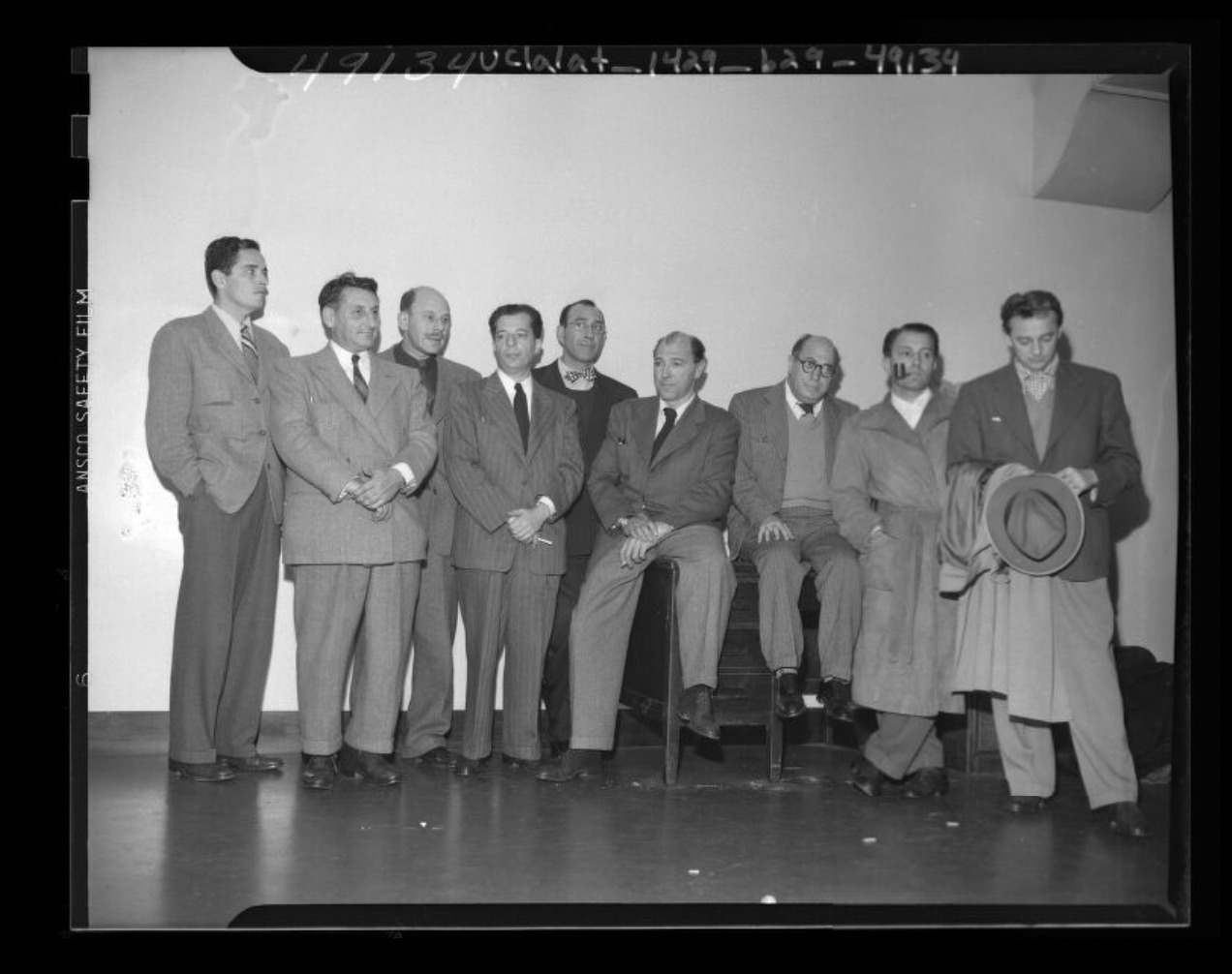Hollywood black list
Anti-Communist Fear Grips Hollywood
The Hollywood blacklist stands as a dark chapter in American cultural history, symbolizing the extremes of anti-communist paranoia during the late 1940s and 1950s amidst the broader Cold War and McCarthyism. It specifically impacted the U.S. entertainment industry, where individuals were barred from employment due to suspected communist affiliations or sympathies. The period was marked by fear and repression, particularly exemplified by the saga of the "Hollywood Ten."
The Hollywood Ten Defy HUAC
The Hollywood Ten, a group comprising screenwriters, directors, and producers, were cited for contempt of Congress in 1947 after refusing to answer the House Un-American Activities Committee (HUAC)'s inquiries into their alleged communist ties. Arguing that the committee's questioning infringed upon their First Amendment rights, which safeguard freedoms of speech and association, they faced significant consequences. Members such as Alvah Bessie, Herbert Biberman, Lester Cole, Edward Dmytryk, Ring Lardner Jr., John Howard Lawson, Albert Maltz, Samuel Ornitz, Adrian Scott, and Dalton Trumbo were not only sentenced to prison but were also placed on a formal blacklist that precluded them from obtaining work in Hollywood.
Blacklist Expands, Careers Destroyed
The effects of the blacklist extended far beyond these ten individuals, eventually encompassing hundreds of actors, writers, and directors, and dramatically altering or curtailing many careers in the entertainment sector over the following decade and beyond. Despite these severe repercussions, the blacklist period also showcased the resilience and eventual recovery of those targeted. Many of those blacklisted continued to work under pseudonyms or moved into other areas of writing and production, maintaining their creativity and integrity despite significant obstacles.
Legacy of Resilience and Redemption
Over time, the legacy of the Hollywood Ten and others affected by the blacklist has been reevaluated, highlighting not just the injustice they endured but also their steadfastness in the face of oppression. Their ability to sustain their professional lives and eventually see a restoration of their reputations underscores a narrative of resistance and redemption. This resilience and the eventual acknowledgment of the wrongs they suffered have made their legacy even more valuable, serving as a cautionary tale about the dangers of political persecution and the enduring spirit of artistic integrity.
